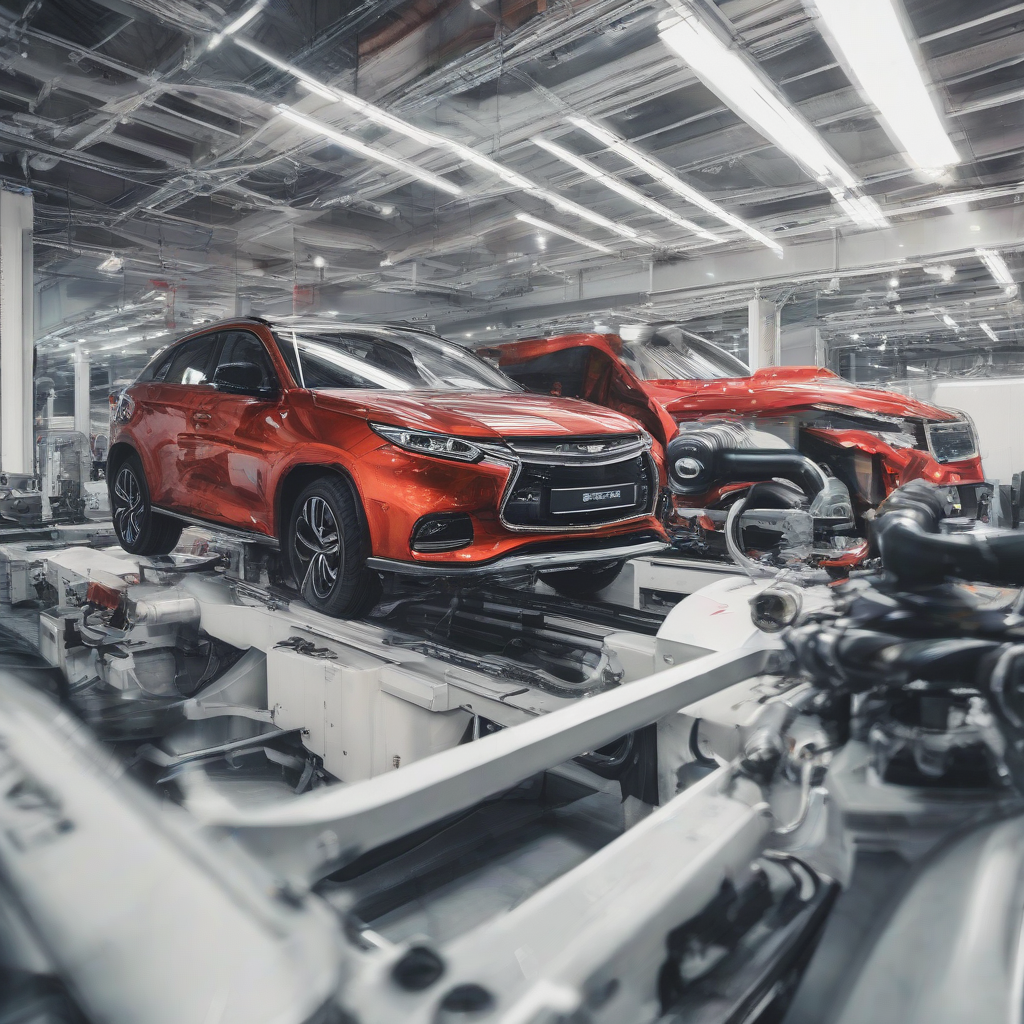Revolutionizing the Automotive Industry: A Deep Dive into CRM Strategies
The automotive industry, a cornerstone of global economies, is undergoing a dramatic transformation. From the rise of electric vehicles and autonomous driving to the increasing importance of personalized customer experiences, the landscape is rapidly evolving. Central to navigating this change is the effective implementation of a robust Customer Relationship Management (CRM) system. This comprehensive guide explores the crucial role of CRM in the automotive sector, examining its applications across various departments and outlining strategies for optimal success.
The Unique Challenges of Automotive CRM
Unlike other industries, the automotive sector presents unique challenges when it comes to CRM. The high value of the products, the long sales cycles, the complex buying process involving multiple stakeholders, and the diverse range of customer interactions all demand a sophisticated and adaptable CRM solution. These challenges necessitate a deeper understanding of customer needs and preferences, efficient lead management, and seamless integration across various touchpoints.
- High-Value Transactions: The significant financial investment involved in purchasing a vehicle requires a personalized and attentive approach to ensure customer satisfaction and loyalty.
- Extended Sales Cycles: The process of researching, choosing, financing, and purchasing a vehicle often spans weeks or even months, demanding robust lead nurturing strategies.
- Multiple Stakeholders: Car buying often involves multiple decision-makers, such as spouses, family members, or business partners, requiring effective communication and collaboration.
- Diverse Customer Interactions: Customers interact with dealerships through various channels—online, in-person, via phone—requiring a unified view of the customer journey.
- Data Management Complexity: The vast amount of data generated across different touchpoints demands a sophisticated CRM system capable of efficient data storage, retrieval, and analysis.
Key Applications of CRM in the Automotive Industry
Automotive CRM systems offer a wide range of applications, impacting nearly every aspect of the business, from sales and marketing to service and parts. Effective implementation enhances efficiency, improves customer satisfaction, and drives revenue growth.
1. Sales and Marketing
- Lead Management: CRM systems help track leads from various sources, score them based on their potential, and automate follow-up activities to maximize conversion rates.
- Targeted Marketing Campaigns: By analyzing customer data, dealerships can tailor marketing messages to specific segments, increasing engagement and improving ROI.
- Sales Forecasting: CRM data provides valuable insights into sales trends, enabling better forecasting and resource allocation.
- Dealership Management: Optimizing sales processes, managing inventory, and tracking salesperson performance.
- Customer Segmentation: Grouping customers based on demographics, purchase history, and preferences to deliver personalized experiences.
2. Service and Parts
- Appointment Scheduling: Streamlining the service appointment process, reducing wait times, and improving customer convenience.
- Parts Inventory Management: Tracking parts inventory levels, optimizing stock, and minimizing downtime.
- Service History Tracking: Maintaining a complete record of vehicle service history, facilitating proactive maintenance and improving customer loyalty.
- Warranty Management: Efficiently managing warranty claims and ensuring compliance.
- Customer Communication: Sending automated reminders for service appointments and updates on repair progress.
3. Customer Support
- Case Management: Tracking and resolving customer inquiries efficiently.
- Knowledge Base: Providing self-service options for common issues.
- Feedback Collection: Gathering customer feedback to identify areas for improvement.
- Issue Resolution: Tracking and resolving customer complaints effectively.
- Proactive Customer Engagement: Addressing potential issues before they escalate.
Choosing the Right Automotive CRM
Selecting the appropriate CRM system is crucial for success. Dealerships must consider various factors, including:
- Scalability: The system should be able to accommodate future growth.
- Integration: Seamless integration with existing systems, such as inventory management and accounting software.
- User-Friendliness: The system should be intuitive and easy to use for all employees.
- Reporting and Analytics: Robust reporting and analytics capabilities to track key performance indicators (KPIs).
- Mobile Accessibility: Access to data and functionality from any device.
- Customization: The ability to tailor the system to specific business needs.
- Security: Robust security measures to protect sensitive customer data.
- Vendor Support: Reliable vendor support and training.
Implementing and Optimizing Your Automotive CRM
Successful CRM implementation goes beyond simply purchasing the software. It requires a strategic approach that includes:
- Data Migration: Careful and accurate migration of existing customer data.
- User Training: Comprehensive training for all employees on how to use the system effectively.
- Process Optimization: Streamlining existing sales and service processes to take full advantage of the CRM’s capabilities.
- Data Integration: Ensuring seamless integration with other systems.
- Continuous Monitoring and Improvement: Regularly monitoring system performance and making adjustments as needed.
- Change Management: Effectively managing the change process to ensure buy-in from employees.
- KPIs Tracking: Regularly monitoring key performance indicators (KPIs) to assess the effectiveness of the CRM system.
The Future of Automotive CRM
The automotive industry is constantly evolving, and CRM systems must adapt to stay relevant. Future trends include:
- AI-powered CRM: Artificial intelligence will play an increasingly important role in automating tasks, personalizing customer experiences, and providing predictive insights.
- Increased Data Integration: Seamless integration with other systems, such as vehicle telematics and social media, will provide a more holistic view of the customer.
- Enhanced Customer Experience: Focus on creating personalized and seamless customer journeys across all touchpoints.
- Big Data Analytics: Leveraging big data analytics to extract valuable insights and improve decision-making.
- Omnichannel Strategy: Seamless customer interaction across all channels (online, offline, mobile).
In conclusion, a well-implemented CRM system is no longer a luxury but a necessity for automotive businesses aiming to thrive in today’s competitive market. By understanding the unique challenges and opportunities presented by the industry, dealerships can leverage the power of CRM to enhance customer relationships, optimize processes, and drive sustainable growth.
